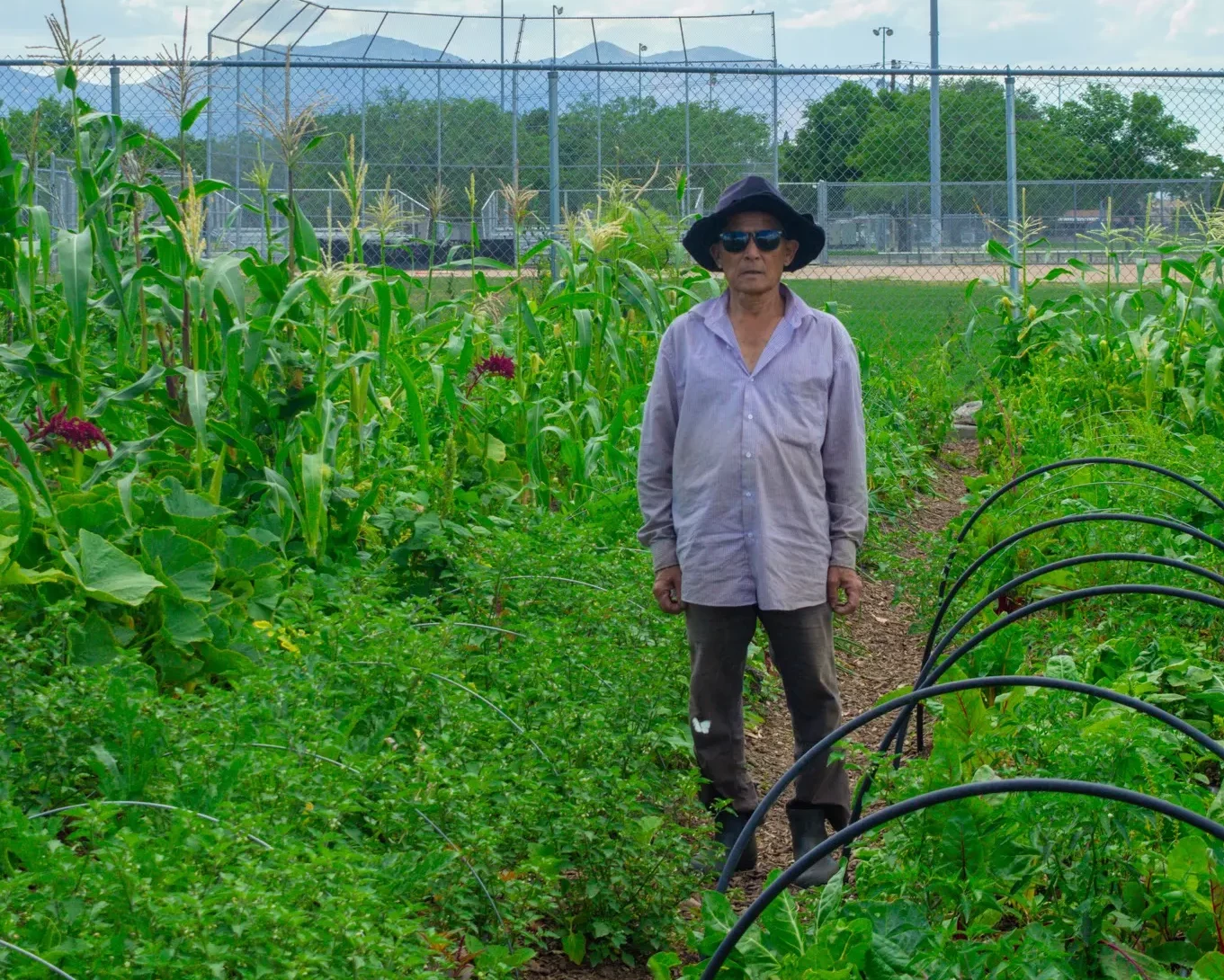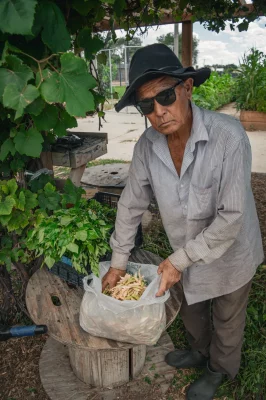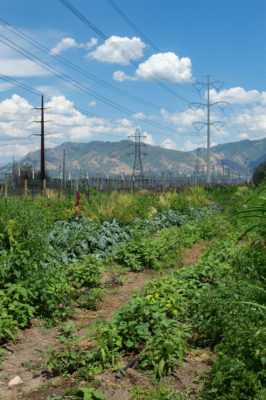
Sowing Seeds of Stability with New Roots SLC
Community
When a refugee first arrives in America, they often struggle to obtain housing, healthcare, education and other basic needs. But what happens after the resettlement journey is complete? New Roots SLC, a food and land access program within the International Rescue Committee (IRC) in Utah, steps in to help refugees at least one year after their arrival in the United States to foster long-term economic stability and community involvement through farming.
“We have clients who’ve been here for 15 years, 20 years—there’s really no time limit,” says Sierra Govett, acting New Roots Program Manager. “Our program is open to any refugee or new American.” In addition to 13 community gardens used by 140 families, New Roots operates two full-scale farms and two farmers markets in the Salt Lake Valley that serve a total of 50 farmers. The newest youth program aims to educate high school–aged refugees about food justice and agriculture.

“We have clients who’ve been here for 15 years, 20 years—there’s really no time limit.”
“A lot of [the farmers] come in with very extensive farming and gardening backgrounds,” Govett says. New Roots also provides education about more unfamiliar topics such as seasonality of crops in Utah, drip irrigation systems and effective small business practices. “We order a lot of specialty seeds for our families that are not readily available in the US,” she says.
New Roots provides the seeds and starters, and the farmers do all the rest. “Farmers are growing culturally specific varieties that they are familiar with and want to sell back into their communities,” says Sarah Adams, acting Entrepreneurship and Economic Wellbeing Director. At the New Roots Redwood Farm in West Valley City, she points out unconventional greens such as amaranth and solanum, regional varieties of Thai pumpkin and African corn and other vegetables I never heard of such as bitter melon and bottle gourds.
“Farmers are growing culturally specific varieties that they are familiar with and want to sell back into their communities.”

The bitter melons are “good for lowering blood pressure,” Adams says, “so a lot of folks will eat it for nutritional value.” They hang from a trellis made by one of the farmers, curving into spiky, oblong shapes. “I tried a bottle gourd for the first time last year,” Govett adds. “It’s sort of like a summer squash. The farmer told me how to eat it, so I made it into a curry, and it was amazing.”
As we tour the farm, one farmer sits under a shade structure, collecting seeds from mustard greens so that he can plant more next year. Originally from Nepal, Harka Mangar has been cultivating crops at Redwood Farm since 2015. He sells mustard greens, daikon, turnips, corn, potatoes and onions at the Sunnyvale Farmers Market every Saturday in the summer. “Business is going back and forth between not so good and not so bad,” Mangar says, communicating through a translator over the phone.
New Roots farmers sell their vegetables at farmers markets, to local Whole Foods, to a few local restaurants and the larger community through community-supported agriculture boxes. Still, farming in the Utah desert isn’t easy, from managing soil health to deterring pests. “Climate mitigation strategies are at the forefront of some of the training that we’re doing,” Adams says. “Last year it got hot really fast, and that put a really large dent in our tomato crop,” Govett adds.
“Climate mitigation strategies are at the forefront of some of the training that we’re doing.”
In order to extend the harvest season through late fall and start planting crops as early as April, New Roots is currently working on setting up high tunnels at Wheadon Farm Park, their 13-acre farm site in Draper. Other upcoming projects include collaborating with the Spice Kitchen Incubator—another program of the IRC that supports refugees in kickstarting their own restaurants—to source locally grown vegetables for their kitchens. For refugees like Mangar, this kind of community support can be life-changing.
New Roots is always accepting volunteers to help with farm beautification and bigger infrastructure projects such as building fences around the farm plots. Learn more about volunteer opportunities, farmers markets and other ways to get involved at newrootsslc.org.
Read more on programs that help refugees in SLC:
You Can Think Globally and Eat Locally: Zaater & Zayton and Catering via Spice Kitchen Incubator
We’re Going to Need a Bigger Goat: The East African Refugee Goat Project of Utah